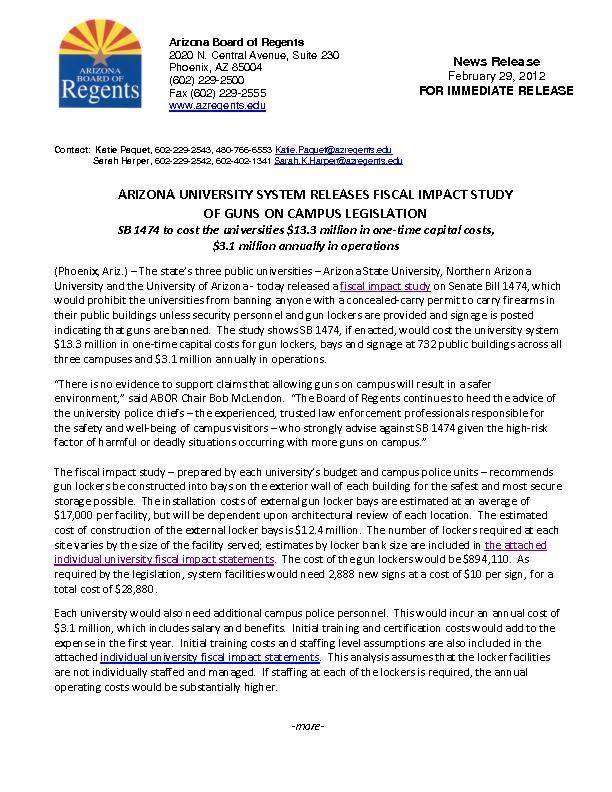The costs and effects of allowing guns on campus were discussed Thursday during a press conference on the UA Mall.
Student leaders, university administrators, the University of Arizona Police Department and the Students for Concealed Carry on Campus club were just some of the individuals who came out to discuss Senate Bill 1474, the proposed legislation that would allow anyone with a permit to carry concealed weapons on campus.
A majority of speakers spoke against the bill, citing safety concerns as well as the cost of installing gun lockers.
There is concern about spending “academic dollars” to install gun lockers in buildings, which would be necessary if guns were allowed on campus, when the university budget was cut by approximately $180 million, according to a statement released by UA President Eugene Sander.
In addition to the cost of allowing guns on campus, speakers were also concerned about campus safety if the legislation were to pass.
“I am not anti-weapons, anti-gun,” said UAPD Police Chief Anthony Daykin. “Firearms are incredibly good tools, but everyone who uses them and knows them understand they are a liability — a liability that has to be managed.”
The position has been and remains that the campuses are safer if the Arizona Board of Regents has the ability to set the policies and rules that govern safety on campuses as well as keep guns off campus, Daykin added.
Coty McKenzie, the state director of Students for Concealed Carry, spoke about why he supports SB 1474. He emphasized the lack of negative reports in universities that allow guns on campus.
“I hear so much coming out against the bill, but what do you have to back that up?” asked McKenzie, a political science senior. “There is no statistical evidence that shows that if guns are put on campus that it will be detrimental to that campus.”
McKenzie asked what the signs on campus indicating it is a weapons-free zone do to protect people. All this bill does is give you the option to protect yourself on campus, he added.
Students shouted out questions that interrupted McKenzie during his speech, but were quickly silenced by ASUA President James Allen. Some attendees shared McKenzie’s opinion.
“I believe students should have a right to defend themselves on campus if they prove themselves to be law-abiding citizens,” said CJ Rodriguez, a junior studying English. “To anyone who is opposed to guns on campus, just remember signs that say ‘no guns’ don’t stop bad guys.”
But some speakers argued crime on campus is so low that there should not be a need for guns on campus.
“We think that the arguments that guns are needed for safety, and this whole bill to allow guns on campus, is solving a problem that does not exist,” said Jay Sanguinetti, co-president of Students Against Guns in Education and a third-year psychology graduate student. “There is no safety issue on campus, or if there is, it’s very small.”
After hearing speakers, some students agreed that the lack of crime on campus did not warrant the use of guns.
“Like the speakers were mentioning, there haven’t really been that many problems and that much violence happened on the campus this last year,” said Alex Hernandez, a pre-physiology freshman. “I feel like if we have guns it could lead to a lot of accidental shootings. Also, I feel many students would not feel comfortable coming on campus where people are going to be with guns.”









